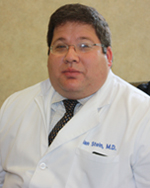
Dr. Stephan Anthony Mayer M.D.
Neurologist | Neurology
710 W 168th St New York NY, 10032About
Dr. Stephan Mayer is a distinguished Neurologist in New York, NY. Dr. Mayer specializes in diagnosing, treating, and managing disorders of the brain and nervous system. With expertise in handling complex conditions like epilepsy, multiple sclerosis, and migraines, Dr. Mayer employs advanced techniques and personalized treatment plans to improve patient outcomes. As a neurologist, Dr. Mayer is committed to staying abreast of the latest developments in neurological research and therapies.
Board Certification
Psychiatry and NeurologyAmerican Board of Psychiatry and NeurologyABPN
Provider Details
Expert Publications
Data provided by the National Library of Medicine- Predictors of cognitive dysfunction after subarachnoid hemorrhage.
- Treatment of refractory status epilepticus with pentobarbital, propofol, or midazolam: a systematic review.
- Global cerebral edema after subarachnoid hemorrhage: frequency, predictors, and impact on outcome.
- Critical care management of neurologic catastrophes.
- Hypothermia for neuroprotection after cardiac arrest.
- Continuous electroencephalographic monitoring in neurocritical care.
- Nonconvulsive status epilepticus after subarachnoid hemorrhage.
- Intracerebral hemorrhage: natural history and rationale of ultra-early hemostatic therapy.
- Ultra-early hemostatic therapy for intracerebral hemorrhage.
- Risk factors for fever in the neurologic intensive care unit.
- Cerebral vasospasm after subarachnoid hemorrhage.
- Treatment of status epilepticus: a survey of neurologists.
- Risk factors for continued cigarette use after subarachnoid hemorrhage.
- Impact of hospital-related factors on outcome after treatment of cerebral aneurysms.
- Intravascular cooling for fever control.
Awards
- 2009-2012 New York Super Doctors
Dr. Stephan Anthony Mayer M.D.'s Practice location
Practice At 710 W 168th St
710 W 168th St -New York, NY 10032Get Direction
VALHALLA, NY 10595Get Direction
Dr. Stephan Anthony Mayer M.D.'s reviews
Write ReviewPatient Experience with Dr. Mayer
Recommended Articles
- Muscular Dystrophy: Cellular Antennae Play Key Role in Muscle Loss
As humans age, it is common for muscle cells to diminish and be exchanged with fat cells. It is a slow process as one cell after another is exchanged. However, this process quickens when a muscle is injured. The worst case occurs in muscle wasting diseases like Duchenne muscular dystrophy. A...
- Home Test Featured on Dr. Oz Can Help Identify Alzheimer's Risk
Many think that there is life after Alzheimer's because patients are armed with the knowledge that their mind will eventually slip away. While there are methods of treatment in place, there is still no formal way to detect the disease early on, making treatment methods difficult to manage because...
- Benign Paroxysmal Position Vertigo: What is it?
Many cases of vertigo experienced by people can be attributed to benign paroxysmal position vertigo (BPPV). It is characterized by recurrent episodes of positional vertigo, which creates the spinning sensation after rapid movements of the head. It can occur due to certain head movements, turning in...
- The Three Best Treatment Methods for Muscular Dystrophy
Muscular dystrophy is a very common condition that can happen to people of different ages. The thing about muscular dystrophy is that there is no definite cure for it. However, there are ways to manage the condition. There are a lot of medications and therapies that can be used in order to keep it...
- New Research Observes Link Between Multiple Sclerosis and Cognitive Function
Nearly 2.3 million people suffer from multiple sclerosis world-wide, and even though that seems like a huge number, there still isn’t a lot of clarity about what causes the condition or how to treat it. Multiple sclerosis affects the central nervous system along the brain and spine and can...
- The History of Muscular Dystrophy
What is muscular dystrophy?Muscular dystrophy is an inherited disorder, which is often characterized by a progressive type of muscular degeneration and weakness. There are several types of muscular dystrophy, wherein each type eventually leads to an increased disability, strength loss, and potential...
Nearby Providers
- Dr. Ian A. Stein MD170 Great Neck Road Great Neck New York 11021
- Dr. Tibor Becske M.D.560 1st Ave New York NY 10016
- Dr. Paul Herberton Gordon M.D.710 W 168th St New York NY 10032
- Dr. Dale J. Lange M.D.800A 5th Ave Ste 203 New York NY 10065
- Dr. Anup Panduranga M.D.300 Community Dr Manhasset NY 11030
- Dr. Nilay R. Shah MD725 River Rd Edgewater NJ 07020
Nearest Hospitals
HARLEM HOSPITAL CENTERl
506 LENOX AVENUE NEW YORK NY 10037LINCOLN MEDICAL & MENTAL HEALTH CENTERl
234 EAST 149TH STREET BRONX NY 10451









